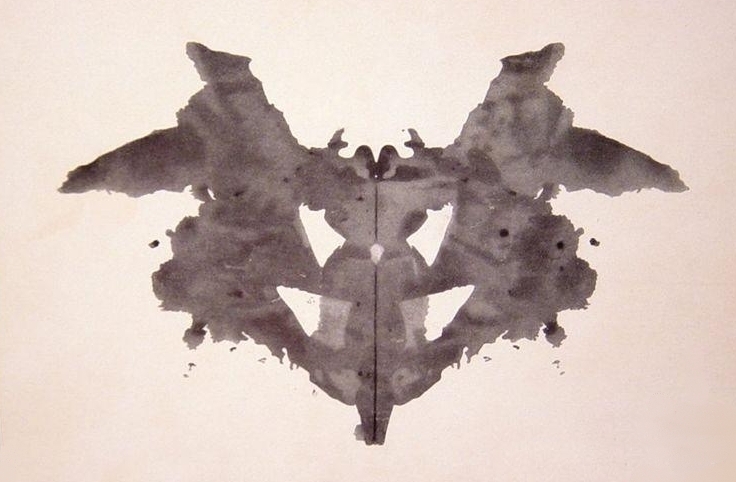We often prioritise the acquisition of knowledge about the world —what we can learn about something and how it will be of use to us in pursuing our goals. But, how often do you stop to really listen to yourself? To explore your relationship with the person that you call, “I”. To consider the very nature of what underlies the relentless pursuit of more — more knowledge, more success, more whatever. What if much of how you relate to the world says more about you than it does about the things you encounter — a kind of ongoing, living Rorschach test.
We project ourselves
As many of you will know, a Rorschach test is a psychological evaluation popularised in the early-mid 20th century. It involves being shown a series of ambiguous inkblots and asked to describe what one sees. The idea is that what the person sees (e.g. a butterfly vs. a scary face) is information about their inner state. How they relate to the world or a particular situation.
My interest here is not in the clinical usefulness of these tests. For example, I am sure they can very easily be gamed. I am much more interested in them as a metaphor for how we all relate to the world in our everyday lives. A metaphor that could turn any encounter or experience into a kind of living Rorschach test. So, in the same way that what a person sees in a Rorschach inkblot might tell us something about them, noticing how we relate to everyday things can teach us a lot about ourselves.
Huge variation
Two people can relate to the same thing in vastly different ways. And, that thing could be a person, situation or even a piece of knowledge. Every moment is a continuous process of sensory stimuli and inference, coupled with a projection of our own past experiences, hopes and dreams.
While there is a large class of things we react very similarly to (e.g. avoiding being burnt by fire), many situations produce huge variation in experience and interpretation. Particularly the more time we have to consciously choose. And, that is not surprising given just how diverse each of our individual life experiences will inevitably have been!
Revealing our deepest beliefs
Every encounter thus has the potential to be a living Rorschach ink blot, to teach you something about yourself and what your inner compass is aimed at. For example, I was talking to a friend the other day about how our personal heroes can easily become vehicles for projecting our deepest hopes, dreams and fears — literally a walking, living Rorschach test.
By investigating how we relate to them, we may be able to discover something fundamental about how we relate to ourselves. About what we are really seeking and for what purpose. Are we using them as archetypes to inspire us to find our own personal power? Or, are we vicariously living a life we wish we had, or some other such thing?
Listening to yourself
If the living Rorschach test is only a metaphor, it is metaphor whose value lies in reminding us to really listen to ourselves. To investigate the interplay between the external world and our own inner thoughts and feelings. Unlike our animal cousins, we humans seem to have the great gift (or curse?) of reflective, introspective awareness. Awareness that can become the gateway to deeper self-understanding and self-mastery.
But, that really calls for the courage to look within because you may uncover some uncomfortable truths.
________________________________________________________________________



Recent Comments